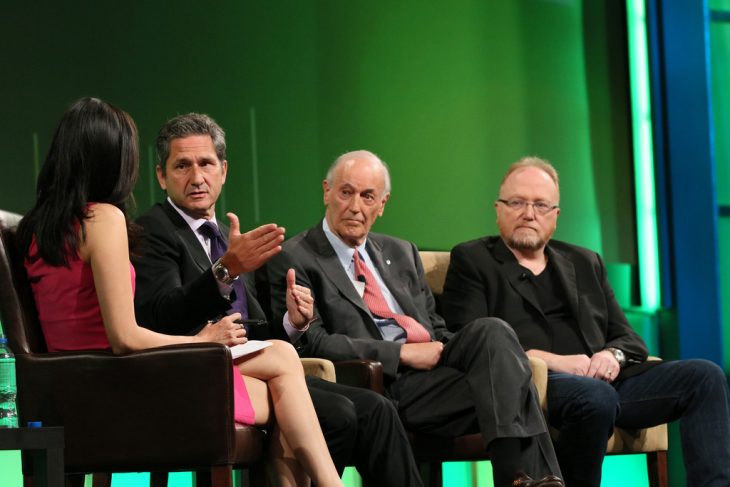
LOS ANGELES – Despite the increasingly powerful competitive threat posed by large Internet video providers like Netflix, some top cable executives believe that Netflix may start producing some benefits for them as well.
Speaking on an opening panel of the Cable Show here Tuesday, the optimistic MSO executives argued that Netflix may actually come to the aid of the cable industry now that a number of cable operators have struck peering or carriage deals with the online bide king. They seemed hopeful that these recent deals, such as last week's carriage agreements between Netflix and three U.S. operators and the earlier peering agreement between Netflix and Comcast, might drive subscriber gains on both the video and broadband fronts.
In fact, Phil Lind, executive vice president of regulatory and vice chairman of Rogers Communications, referred to Comcast’s peering agreement with Netflix as “a breakthrough on how the Internet will be treated.” That pact, which calls for Netflix to pay Comcast for direct connection to its vast U.S. broadband networks, has already led to a similar interconnection arrangement between Netflix and Verizon Communications.
With deals like the one struck with Comcast, Lind indicated that Netflix could now help spur more consumers to sign up for cable. Netflix, he predicted, will play “an important role in our future.” (Lind, middle, is pictured With Liberty Global’s Mike Fries, left, and CableLabs CEO Phil McKinney. Photo courtesy The Cable Show.)
Another leading cable executive contended that Netflix has already done the cable industry some good by teaching it a valuable lesson or two about search, navigation and other key video service features.
Indeed, that executive, Liberty Global President and CEO Mike Fries, bluntly declared that Netflix “exposed that we have a massive functionality gap.” What Netflix proved, he said, is that there’s an easier, better way to search and find content and get video recommendations. He also noted that the rise of online video and its skyrocketing rate of consumption have "impacted every aspect of our business.”
Fries said the cable industry has finally begun to bridge that gap with the online world by rolling out such next-gen products as Comcast’s X1 video gateway and Liberty Global’s own Horizon gateway. Both of these new, souped-up set-top boxes offer slick new, cloud-based user interfaces and the opportunity to stream video programming beyond TVs to tablets, smartphones and other mobile devices.
“My kids spend more time on X2 than they do on other environments,” Fries said, making a reference to the latest version of the X1 boxes that Comcast began deploying earlier this year.
Even with its ambitious rollout of the Horizon gateway in several European nations, Fries admitted that Denver-based Liberty Global has become somewhat enamored of Netflix. Virgin Media, which Liberty Global took over two years ago, now offers access to Netflix on cable set-tops that run the TiVo service.
“You don’t have to leave our environment,” Fries said, citing the benefits of offering Netflix on the cable platform. “We may do that in other markets.” He also indicated that Liberty Global, which primarily operates in Europe, might launch its own over-the-top services too.
While it has become critical for pay-TV providers to extend their video services to tablets, smartphones and other connected devices, Fries said, the “big screens are alive and well.” He noted that about 85% of all video programming is still watched on TV screens. “For the cable industry, that’s good news, I think,” he said.
Fortunately for Rogers, it already has just about all the possible screens in and out of the home covered. That's because Rogers, unlike most U.S. MSOs, manages large cable and wireless networks and strongly factors both of these assets into its mobility strategy, according to Lind.
He also noted that Rogers has a different attitude about WiFi than many of its U.S. cable peers. “We offer WiFi, but not as a competitor to ourselves," he said. "We just offer it."
– Staff



